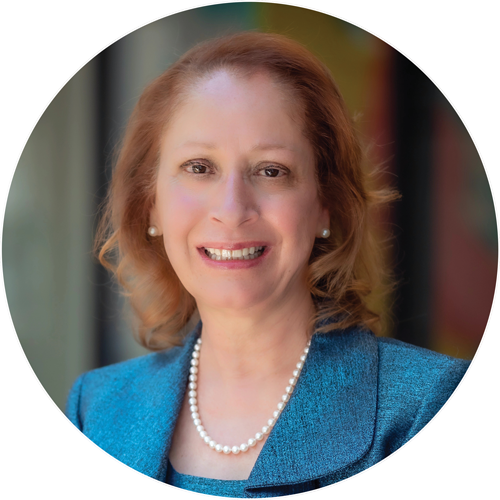In today’s workforce, only 24 percent of computing jobs are held by women, and without proper role models, very few female graduates are pursuing a career in Information Technology (IT) and engineering STEM fields.1 To help close this gender gap and empower more women to build a successful career in IT—specifically network engineering and high performance computing (HPC)—the Women in IT Networking at SC (WINS) program provides mentorship and travel funding for early to mid-career women from diverse regions of the national research and education IT community. This select group of engineers and technologists is able to gain hands-on experience in the ground-up construction of SCinet, the Supercomputing Conference’s (SC) dedicated high performance research network, and one of the fastest and most advanced computer networks in the world.
Initially introduced as a pilot program, the WINS management team focused on developing a rigorous and respected application review and finalist selection process. If selected, candidates gain direct access to SCinet and have the opportunity to learn alongside the world’s leading network and software engineers and the top network technology vendors. Originally, WINS was a joint effort between the Energy Sciences Network (ESnet), the Keystone Initiative for Network Based Education and Research (KINBER), and University Corporation for Atmospheric Research (UCAR). Recently, Indiana University (IU) has become a full partner replacing KINBER’s role. The multi-year program is funded primarily by grants from the National Science Foundation (NSF) and direct funding from ESnet with support from the Department of Energy and other collaborating organizations from the research community and industry.
“We send many of the awardees to conferences to present and connect with their peers and IT leaders. We’ve also begun hosting quarterly calls to discuss topical issues and challenges. During COVID, we had several conversations about how it was impacting people personally and professionally and what was working and what wasn’t. We want to help everyone build a long-term professional network and a career roadmap. Many women return to WINS to assist our efforts and become team leaders, and we’re so proud to see them finding success in their own careers. Many former awardees are getting promotions and being introduced to new job opportunities because of the professional network they established during the program.”
– Marla Meehl
Network Engineering and Telecommunications Services (NETS)
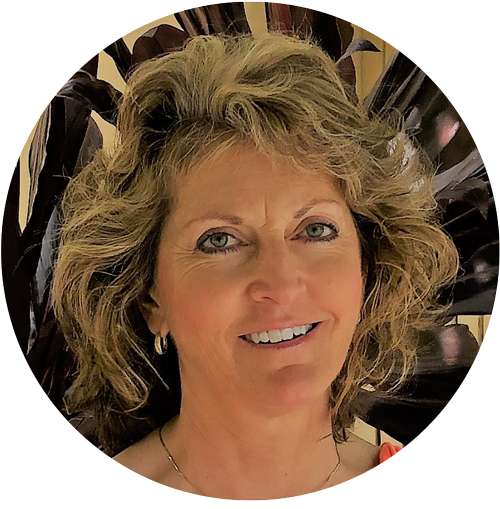
Creating a WINning Program
Becoming involved in its efforts during WINS inception, Marla Meehl leads the Network Engineering and Telecommunications Services (NETS) in Enterprise Information Technology at the University Corporation for Atmospheric Research (UCAR). Bringing over 25 years of experience managing large research and education network projects, Meehl is a Principal Investigator (PI) and the program manager of the WINS program. She has also been instrumental in the development of external networking projects and activities for UCAR, including the Front Range GigaPoP (FRGP), Bi-State Optical Network (BiSON), and the Boulder Research and Administration Network (BRAN).
At the beginning of the WINS program, Marla began exploring the statistics and issues women were facing in IT. “I was shocked by how dismal the numbers are for women in this field, particularly for women that are certain minorities,” shares Meehl. “Women make up over 50 percent of the population, and yet, we don’t make up nearly 50 percent of the IT jobs. We have learned a great deal in the years since WINS began as a pilot program in 2015 and we have created a successful onboarding process for incoming candidates. SCinet is a very intense experience and we want to ensure each woman is prepared and has necessary resources and support to integrate into the program. We have a very committed team to make this possible and continue to evolve to improve our processes and procedures.”
Along with Meehl, co-lead, Wendy Huntoon, brings extensive experience and expertise to the WINS program, including involvement in supercomputing and SCinet all throughout the 1990s. “I’m a network engineer by trade and have a master’s degree in electrical engineering,” shares Huntoon. “My mother was an electrical engineer and my role model growing up. I started at the Pittsburgh Supercomputing Center in 1989 and that’s how I got involved in supercomputing. I am used to being one of the few women in the field and Marla and I first connected over this experience. Jason Zurawski, Science Engagement Engineer at ESnet, and I had begun exploring ways SCinet could increase female participation and approached Marla about getting involved in a pilot program. We began looking at what was preventing women from attending their conferences. In addition to finding travel funds, many times departments that send their team members to these events are choosing senior engineers, which are most often men.”
“This is what spurred the creation of the WINS program and helped a greater diversity of people receive the same opportunities,” continues Huntoon. “In my own life, many of the people I worked with early on at Supercomputing and through SCinet provided valuable career support, and I wanted to make sure that future generations of women coming up through the ranks had those opportunities as well.”
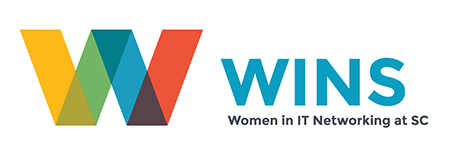
Fast Facts & Accomplishments
- Received over 200 applications from 38 states
- Awardees come from 43 states representing higher education and community colleges, tribal school systems, DOE National Labs, RENs, and for-profit organizations
- Since its inception in 2015, the WINS program has selected 45 women to participate
- In 2015, 17 of the 122 SCinet volunteers were women, with 5 of them from WINS
- The percentage increase in women participating in SCinet has grown to 36.65% from the 10% participation the year the program started
Fostering Career-Building Opportunities
To find the top candidates, the WINS program has an in-depth review process for applications. “The selection committee reviews submitted materials closely, including a resume and written statement by the candidate, a letter of recommendation from their manager, and which SCinet team they wish to join,” explains Huntoon. “We spend a lot of time on making the right match, because we’ve found over the lifetime of the program, a good match matters. The interest of the applicant must align with the needs of the team and we want to ensure the mentor and team can provide support for the participant when they go to SCinet.”
In recent years, WINS is actively working to give more underrepresented minorities in the IT field access to the program and helping to expand their professional development and networking opportunities. “We send many of the awardees to conferences to present and connect with their peers and IT leaders,” says Meehl. “We’ve also begun hosting quarterly calls to discuss topical issues and challenges. During COVID, we had several conversations about how it was impacting people personally and professionally and what was working and what wasn’t. We want to help everyone build a long-term professional network and a career roadmap. Many women return to WINS to assist our efforts and become team leaders, and we’re so proud to see them finding success in their own careers. Many former awardees are getting promotions and being introduced to new job opportunities because of the professional network they established during the program.”
To help encourage more underrepresented minorities to apply to the WINS program, Meehl says they continue to connect with their networks and other programs across the education community to spread the word. “We are growing our network of minority-serving institutions that we can directly reach out to and expose more women to these opportunities. Partnerships, like the one we have with the ESnet, are an integral part of strengthening the program’s efforts and offering staff support and funding for candidates. The incredible support we receive from these organizations is essential to the program’s success and helping more women experience this exciting opportunity.”
For WINS participants, the first essential building block is the skills development that occurs after entering the program. “Awardees are exposed to equipment and operating systems that are often not common at their home institution,” says Huntoon. “They are tasked with setting up an entire network in a short amount of time, so you must be agile and flexible. I think the women learn a lot about themselves and what they’re capable of doing, as well as how to reach out for help, take direction and potentially criticism, and learn from the greater community. They also have the opportunity to work alongside people they may not have a chance to in their day-to-day jobs. All of this experience can help broaden their perspective and they return to their organizations with new skills and a professional network that the home institution can tap into. They are also developing key leadership skills that can help propel their careers forward.”
“Awardees are exposed to equipment and operating systems that are often not common at their home institution. They are tasked with setting up an entire network in a short amount of time, so you must be agile and flexible. I think the women learn a lot about themselves and what they’re capable of doing, as well as how to reach out for help, take direction and potentially criticism, and learn from the greater community. They also have the opportunity to work alongside people they may not have a chance to in their day-to-day jobs. All of this experience can help broaden their perspective and they return to their organizations with new skills and a professional network that the home institution can tap into. They are also developing key leadership skills that can help propel their careers forward.”
– Wendy Huntoon
Consultant
Keystone Initiative for Network Based Education and Research (KINBER)
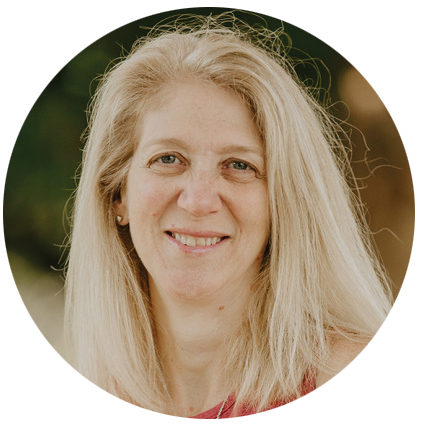
Building a Powerful Network
Additional support for WINS and finding potential candidates for the program has also come from research education networks (REN). “In several cases, these networks have not only submitted applications for women in their organization, but also helped fund them if they are selected,” explains Meehl. “A western research and education affinity group, Westnet, with participants from Utah, Colorado, Wyoming, New Mexico, Arizona, and Idaho, has been very supportive of WINS and inviting women to share their experience and discuss diversity issues with a larger audience. Because of their work with WINS, it has helped encourage program diversity, particularly through the connection with Native American organizations. We’re also seeing more regionals create diversity scholarships and programs for people to attend their meetings.”
“The Quilt, which is a national coalition of nonprofit U.S. regional research and education networks, is a supporter of WINS and has regularly donated funds to help awardees attend their leadership program,” explains Meehl. “Through this collaborative network, we continue to raise awareness, provide continuing professional development, and inspire organizations to start their own programs that support women and minorities who wish to pursue an IT career.”
To help more members collaborate and accelerate research and discovery, RENs connect to Internet2, which provides secure high-speed network, cloud solutions, and research support to the institutions, government entities, and cultural organizations. “Internet2 started a program called the Internet2 Inclusivity Initiative (I2I), where I served as a co-chair for many years,” says Meehl. “Along with providing resources and mentorship, I2I offers scholarships to help women attend and present at Internet2 events to provide professional development, build professional networks, and increase community diversity and inclusion.”
“The regional network is a great place to talk about diversity and to make a significant impact,” adds Huntoon. “WINS has been able to showcase what we’re doing from an inclusivity standpoint and many diversity activities have been created within these regional networks. The community is looking for a more diverse workforce and we’ve found that many organizations are embracing the WINS program and the role it can play in helping to build the IT careers of more women and minorities. What we’re hoping is the people who participated in WINS or support the program will go out and promote diversity within their own organizations.”
“Receiving the WINS award for SC18 had a transformational impact on my life. I found a community that I wanted to be a part of and that gave me a renewed love for network engineering, as well as a space to grow not only my technical skills, but my communication and leadership skills. It also allowed me to give back to the R&E community, specifically underrepresented populations, in ways that I didn’t imagine were possible through my current work on the WINS management team.”
– Brenna Meade
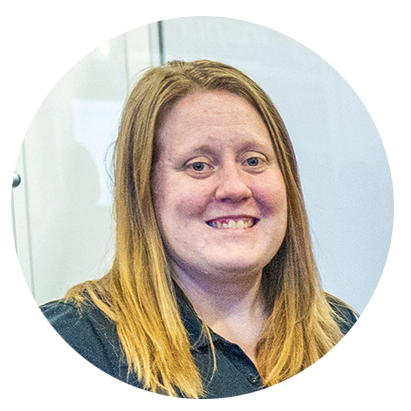
Cultivating a Diverse Workforce
Since its inception, the WINS program has selected 45 women to participate in SCinet, and the percentage of women participating in SCinet has increased significantly since the WINS program started in 2015, both in the number of women participating and the percentage of women leading SCinet teams. In looking to the future, the WINS management team is determining how to effectively scale WINS volunteer participation, taking both new and returning WINS awardees into account. “The structure of the WINS program must provide the necessary financial and managerial support, while the SCinet management and mentors must be able to integrate and mentor the volunteers into their teams,” explains Meehl. “With additional funding from the NSF, we’ve explored options for developing and implementing a self-sustaining program.”
To help in this mission, WINS has brought together leaders in the community who support the program to form an advisory committee. First becoming involved with WINS by serving on the application review committee, Dr. Forough Ghahramani, Assistant Vice President for Research, Innovation, and Sponsored Programs, Edge, brought her experience in IT leadership roles and developing models that foster diversity and inclusion in the education and research ecosystem. Having a passion for diversity and inclusion and helping more individuals access career-building opportunities, Dr. Ghahramani was invited to join as the Chair of the WINS advisory committee. “It is an absolute honor to be selected for this role,” says Forough. “Although the advisory panel has completed its mission, it was a pleasure working with a dedicated, talented group of professionals who are focusing on providing an inclusive environment where women are empowered to thrive and achieve success in their chosen field.”
Huntoon says the WINS program has been more successful than they even imagined. “In 2024, the next SCinet chair will be a WINS program alumnus and someone who rose into a leadership position. Along with career advancement, we’ve seen WINS alumni participate in the greater community and expand their relationships at regional research and education network meetings, as well as become strong mentors who can share their experience and insight with younger generations. Most importantly, we want to bring the message to more women—not just WINS participants, but applicants and the greater community—that the program is focused on helping build careers and creating the next generation of diverse IT leaders.”
“The WINS program provides important career building blocks, especially for women and working mothers in particular,” Huntoon continues, “We have built in more flexibility, so if for any reason an awardee can’t attend that year, they can defer to a later time. We also want to give them tools to pursue a rewarding career and participate in the community, while maintaining a work-life balance. In recent years, we’ve begun hosting alumni calls and inviting women who have participated in WINS to discuss topics that are important to them. Representatives from small colleges and universities, department energy labs, and commercial organizations all come together to explore resume building, how to request a raise, managing a team, improving communication skills, how to address biases, and ways to find work-life balance. This allows WINS participants to build a network that they can utilize as they move through their careers.”
“As a community, we must figure out ways to ensure anybody who wants to go into IT or a STEM field has an opportunity to do so, and when they enter that environment, they are comfortable enough to remain in that field and understand how they can contribute,” says Huntoon. “I watched my mom excel in her profession and when she retired, she was the deputy director of a group of nearly one hundred people, mostly men. When I was going into my career, I realized how fortunate I was to have her as a role model and that having this guidance and inspiration is not always common. At its core, the WINS program looks to create these mentoring opportunities and cultivate working environments that welcome and celebrate different ideas, backgrounds, and experiences.”
1Women in Tech Statistics: Girls Get Tech. DataPort. March 2022.
“Having a passion for diversity and inclusion and helping more individuals access career-building opportunities, Dr. Forough Ghahramani, Assistant Vice President for Research, Innovation, and Sponsored Programs, Edge, was invited to join as the Chair of the WINS advisory committee. “It is an absolute honor to be selected for this role. I look forward to working with a dedicated, talented group of professionals who are focusing on providing an inclusive environment where women are empowered to thrive and achieve success in their chosen field.”
– Brenna Meade
